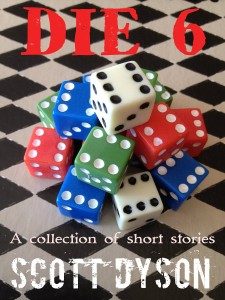I finished reading Jonathan Kellerman’s KILLER, an “Alex Delaware” psychological thriller novel, yesterday. The story grabbed me and I came to a point where I couldn’t put it down.
I feel like I’m reading about an old friend when I read Kellerman’s Delaware novels, and this one was no exception. The familiar troika of Alex, gay police detective Milo Sturgis, and Alex’s significant other, Robin, are all present, as are a few bit players like Moe Reed and Petra Connor. And the plot is familiar too: A criminal case ties into Alex’s practice as a clinical psychologist.
If you’ve ever read any of these books, you know that Alex consults for the police, and Milo Sturgis is sort of a one-man police force due to some incriminating information he has over the current chief of police in Los Angeles. Milo can do pretty much whatever he wants, and he has the best clear rate of any detective in L.A., thanks in no small part to the insights of his psychologist sidekick. Alex also has varied experience ranging from hospital work to clinical therapy to court work to…well, he’s done a bit of everything, it seems, and he’s good at everything. But through it all is a sense that he’s human, with human doubts and failings. No superman sleuth here. And there aren’t any special forces types waiting in the wings to bail them out if they get in over their heads. I like that. So many detectives have someone who is a little too tough to be believed, really, at their beck and call. Not Alex. He has Milo and a few other cops. And Milo has Alex.
I also liked the voice that Kellerman uses in these first-person novels. Alex is talking and thinking and telling the stories that make up the plot of these crime thrillers, and his voice is distinctive. There’s a “clipped” feel to the writing that makes you know it’s Alex and not some other point of view (though I can’t really recall Kellerman altering the POV away from Alex in this series…but there’s a lot of books and maybe he has done so a time or two, shifting perhaps to Milo’s point of view). You’re in Alex’s head, and it’s a comfortable and comforting place to be; a character who is confident in his skills but not omniscient or always right, and his discomfort when he thinks he’s been hoodwinked or something comes through and it feels right.
There was a point in the series where I felt Kellerman was “mailing it in” with these stories, that perhaps he had lost the passion for telling Delaware tales, but somewhere along the line, he got back on track (in my view) and these recent ones have been excellent. This one is no exception.
This book starts with Alex talking about a woman walking into his office and making a thinly veiled threat to shoot him right then and there. Needless to say, it spooks Alex, but he convinces himself that it wasn’t much of a threat and he doesn’t need to inform the police. At this point, he flashes back to the case in question, one where a woman (the woman who threatened him) wants to use the legal system to take her sister’s child away from her, using her considerable resources to hire “experts” and high-powered attorneys. Alex is brought in by the judge, and he supports the child’s mother. The judge agrees with him, and the case is resolved in that manner. The woman, not accustomed to losing, makes her threats. Alex informs the judge of what happened, and that is, he hopes, the end of it.
When Milo and another cop show up on his doorstep a short time later, Alex learns that the woman has tried to take out a contract to have Alex (and perhaps the judge, as well) killed. The hit goes to a Hispanic gang, and it so happens that Alex had some dealings with this kid when he was a young diabetic who wasn’t following medical advice. Alex made an impression, and as luck would have it, this kid, now a young adult and fully involved in the gang, really likes Alex and prevents the hit at the gang level, and in fact, goes to the cops. Lucky break for Alex. Once again, Alex feels the brush of death against him, how close he came, if not for this serendipitous relationship with a gang member in days gone past.
But the woman turns up dead, and guess who’s the prime suspect? No, it isn’t Alex. It’s the sister, who appears to have left town the very night of that murder. Milo’s sure it was the sister who did it; everything seems to line up. Motive, opportunity, and then the flight. But Alex is so sure that he couldn’t have been wrong about her…and once again, Alex faces something that shakes his outward confidence. You can feel his internal discomfort as you read these sections, as he tries to project calm and confidence outward. But Robin knows, and so does Milo.
I was less than thrilled with the resolution of the case. It worked, but I was hoping for something a little…less out of left field, I guess. I won’t say more. It didn’t ruin the book for me, but it did make me wish that there had been a more elegant solution to the mystery presented; that is, where was the sister, who killed the woman who threatened him, and what happened to the baby.
A good, quick, fun read that kept me sucked in for a day and a half with non-stop reading at night, in the morning, and finally, between patients and over lunch until I finished. Looking forward to the next one when it hits the bargain shelves at Barnes and Noble.
*****

